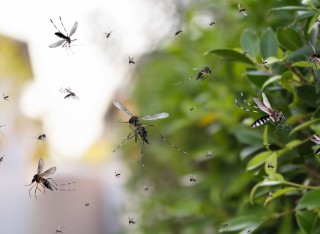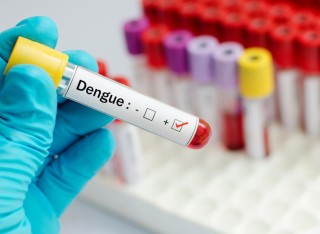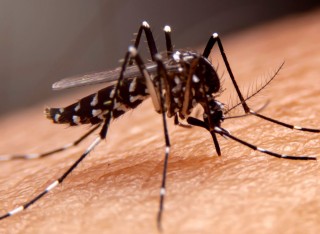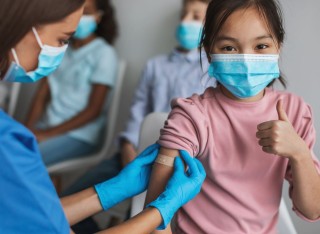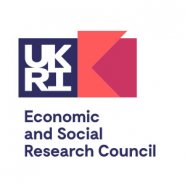
Improving the policy response to infectious disease: The case of dengue in Brazil
Start date
May 2021End date
February 2024Overview
More than half of the world population is at risk of dengue fever, an infection transmitted by Aedes Aegypti mosquitos most common in tropical and subtropical countries. Due to climate change, countries previously not affected are more and more subject to local transmission, including the southern US, Spain, Italy and France. Brazil is a major hotspot with the greatest number of dengue cases and running the most expensive vector control programme in the world.
This ESRC IAA funded project led by Dr Martin Koppensteiner, focuses on providing novel estimates of the cost of this neglected tropical disease and making these results available to decision makers in state and federal governments in Brazil to help improve the response to this disease.
Team

Principal Investigator
Professor Martin Foureaux Koppensteiner
Professor of Economics
Biography
I'm an applied microeconomist with an interest in crime, education, health and development. In my research I focus on the evaluation of public policies and aim to contribute to the understanding of the intended and unintended consequences of these policies. For the evaluation I use quasi-experimental methods and randomized-controlled trials.
I received my MSc in Economics from University College London and my PhD from Queen Mary University of London.
I currently work on two overarching projects using Brazilian administrative data. In the first project, the Understanding Crime Project, we provide new insights on the cost of crime using large linked individual datasets that allow us to look at the consequences of direct and indirect exposure on the health, education, and labour market outcomes of individuals. We also provide new insights on how institutions respond to crime and violence. In the second arm of the project, we work to establish the root causes of crime using uniquely suitable microdata that allow us to investigate individual pathways to entering criminal careers. Papers from this project have been published in the Journal of Labor Economics, American Economic Journal: Economics Policy and the Journal of Development Economics.
In a second overarching project, The Cost of Diseases Project, I provide new insights on the cost of disease, focusing currently on dengue fever in Brazil. The first paper from the project has just been published in the American Economic Journal: Applied Economics. We are working closely with policy makers in Brazil, the WHO and PAHO to use insights from our research to inform policy making on vector-borne diseases, including on the vaccine roll-out of newly available dengue vaccines, and vector control interventions.
I've held grants by the ESRC, Wellcome Trust, the British Academy, UKRI-GCRF, ESRC-DFID, the Ministry of Justice PCC, and the IDB.
I am a Research Fellow at IZA, an invited researcher at J-Pal, an adviser to the Evaluation and Trial Advise Panel (ETAP), serve as scientific advisor to the Home Office on the evaluation of domestic abuse policies and the Ministry for Housing, Communities and Local Government on their STEP Ukraine Evaluation. I also closely collaborate and advise a number of state government departments in Brazil, including health, education and public security.
Currently I am leading a consortium of researchers on the evaluation of the State Evaluation System in Brazil, supported through a British Academy Evidence-informed Policymaking Grant.
Please view my CV for more information.

Co-Investigator
Livia Menezes
Assistant Professor in Economics, University of Birmingham
See profilePlanned Impact
Through this IAA project, Martin and his team have been informing policymakers in Brazil at the local, state, and federal levels on the consequences of dengue infections on costs not previously considered in policymaking through a series of policy workshops and conferences.
Working closely with public servants in the state of Minas Gerais they are disseminating research findings and advising on the vector control programme in the 853 municipalities of the state. The results from the research are also now informing public and private health institutions about the benefit of individual measures, such as mosquito repellents, for groups most affected by dengue, for example, pregnant mothers.
Also, little was known about the consequences of dengue infections on children and this project is helping to provide for the first time causal evidence on the effect of dengue on school success, showing that infections increase dropout and grade repetition of secondary school students.
The outcomes of this project are already aiding adoption decisions of novel vaccines and cost-benefit analysis for different groups. It is hoped the methodology used by Martin and the team will be expanded to other infectious diseases providing policymakers with tools to aid their decisions around available but scarce vaccines, across the world. Dr Koppensteiner aims to inform health officials in other countries affected by dengue, in the Americas and Asia, to encourage better policy decisions on this neglected tropical disease.
"We were recently invited by the Brazilian Health Ministry to provide written evidence on our research on the cost of dengue, to the technical consultation of CONITEC, the Brazilian National Committee for Technology Incorporation for their evaluation of new dengue vaccine (TAK-003). In response, CONITEC decided to adopt the new vaccine in Brazil for children aged 6-16. Brazil is the first country to include the vaccine in its public health system, affecting around 200 million people. We are currently extending our impact activities and work with SAGE of the WHO, to incorporate our evidence into the recommendation on the targeting of TAK-003, which could impact more than half of the world’s population in countries where dengue is endemic.” - Dr Martin Koppensteiner
